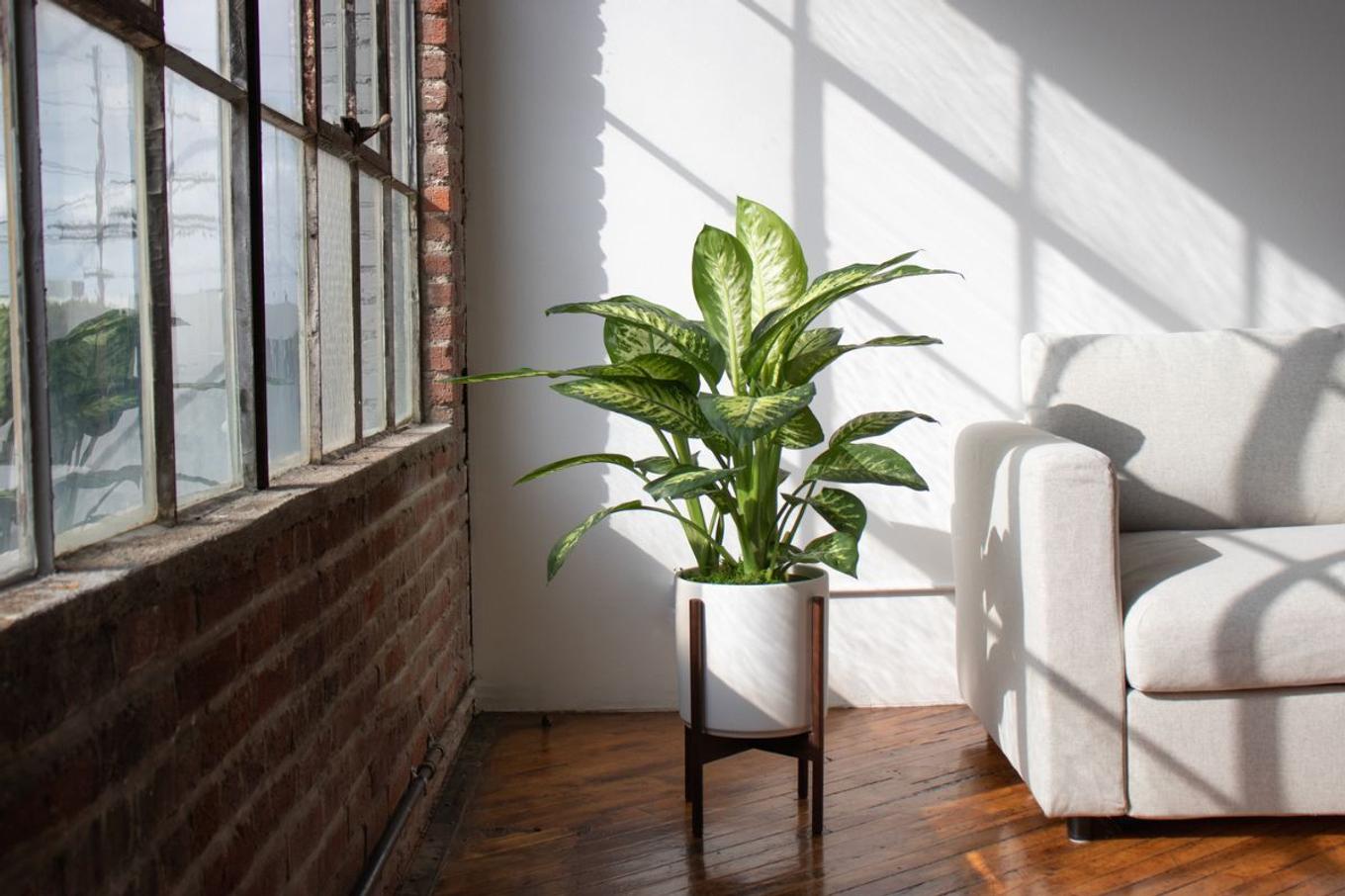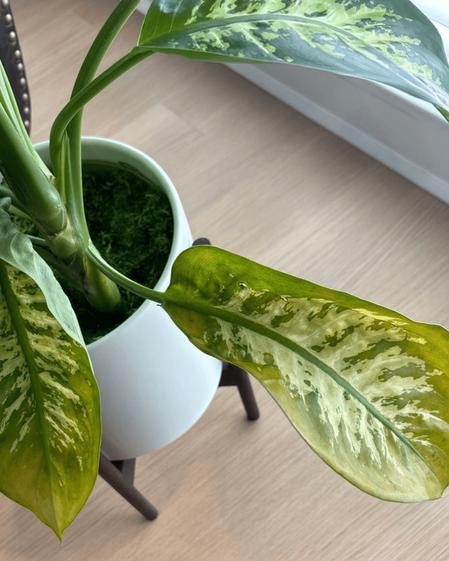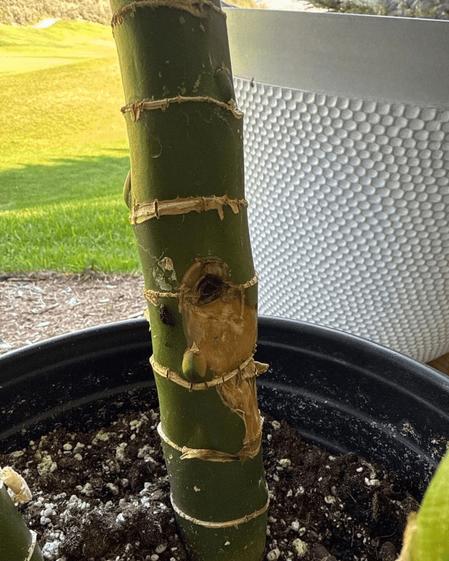Dieffenbachia Care Guide

With its large, eye-catching leaves streaked in shades of green, cream, and white, the Dieffenbachia (also known as Dumb Cane or Tropic Snow) brings a lush, tropical feel to any indoor space. This fast-growing foliage plant is easy to care for with the right environment—and it rewards you with dramatic growth and vibrant color. Keep reading for simple care tips to help your Dieffenbachia thrive.
Simple Care Instructions for the Dieffenbachia
Light Requirements
Dieffenbachias grow best in bright, indirect light. It can tolerate lower light conditions, but may become leggy or lose variegation if light is too limited. Avoid placing it in direct sun, which can scorch its broad leaves. North or east-facing windows, or a few feet back from a bright window, are ideal.
Watering Needs
Water thoroughly when the top 2 inches of soil feel dry—typically every 7–10 days. Dieffenbachia likes consistent moisture but doesn’t want to sit in soggy soil. Think of it like a tropical plant that enjoys a deep drink after drying out a bit.
To avoid overwatering, always check the soil before watering, or use a moisture meter to remove any guesswork. Occasional misting can help boost humidity and prevent browning leaf tips, especially in drier climates.
Humidity and Temperature
Dieffenbachia enjoys moderate to high humidity. If your home runs dry, mist the leaves or place a humidifier nearby. This plant thrives in temperatures between 65–80°F (18–27°C) and is sensitive to cold drafts or sudden drops in temperature. Keep it away from open windows in winter and from air conditioning vents in summer.
Soil and Fertilizing
Use a light, well-draining indoor potting mix. A blend with peat moss, perlite, and compost will support strong growth while ensuring roots don’t sit in excess moisture.
Fertilize once or twice a month during the growing season (spring and summer) using a balanced indoor plant food. You can also foliar feed year-round for an extra boost. Hold off on fertilizing in fall and winter when growth naturally slows.
Common Problems and Troubleshooting Tips
Yellow Leaves – Overwatering or Drainage Issues
Symptoms: Yellowing leaves, especially near the bottom of the plant.
Cause: Often caused by overwatering or poor drainage.
Solution: Check if the topsoil is dry before watering. Make sure your pot has drainage holes and that excess water isn’t pooling at the bottom. If yellowing continues, inspect roots for rot—trim away any mushy roots and repot in fresh soil.
Leggy Growth – Low Light or Nutrient Deficiency
Symptoms: Long stems with fewer leaves.
Cause: Usually a sign of insufficient light, but can also result from lack of nutrients or a root-bound plant.
Solution: Move your Dieffenbachia to a brighter location and ensure you're fertilizing during active growth periods. If it’s been over two years since you’ve repotted, consider upgrading its pot and refreshing the soil.
Pests, Fungus or Nutrient Deficiencies
Symptoms: Discoloration, spotting on leaves or central stalk, or stunted growth.
Cause: Could be caused by sap-sucking pests or depleted soil. It may also be caused by fungus.
Solution: Inspect the leaves (especially undersides) for pests. If found, isolate the plant and treat with an all-natural solution like Super Neem Oil. Neem Oil may also be used to treat fungus. Repot and/or fertilize if you suspect a nutrient deficiency.

If plant is otherwise looking healthy, it's simply time for this yellow leaf to go.

Damage to central stalk could be due to pests or fungus.
Seasonal Care Tips
As seasons change, so should your care routine. In fall and winter, growth slows and your Dieffenbachia needs less water and no fertilizer. Be careful with cooler windowsills or drafty areas—this plant prefers warm, consistent temperatures. Come spring, resume regular feeding and pruning to encourage full, lush growth.




